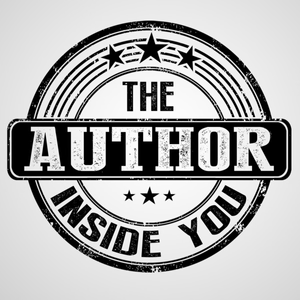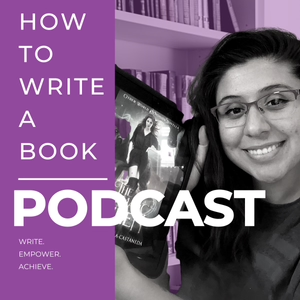
36. Breaking the Sound Barrier: Understanding Misophonia
10/17/20 • 16 min
What is your favourite sound? One that really lifts your spirits and lightens your heart - maybe even gives you tingles or goosebumps - one that brings a smile to your face every time you hear it? Chances are... hopefully... you can name a few things that fit that category. Baby giggles, waterfalls, wind chimes, certain musical instruments, a cat’s purr, rustling leaves in the breeze...
what about the other end of the spectrum. What’s your least favourite sound? One that sends shivers down your spine, that makes you grit your teeth, or cringe and plug your ears?
Chances are, you’re also able to name a few unpleasant sounds that you really don’t like. AND, it’s likely that they are sounds that annoy other people as well - “universally disturbing sounds” - like the scraping of a fork on a plate, nails on a chalkboard, screaming babies, clicking pens, jingling change in someone’s pocket, grinding teeth, tapping pencils on the table...
Is there a sound though, that physically triggers you. And what I mean by “trigger”, is not just like a severe annoyance - I’m talking a sound that rocks you to your core, that kicks up your fight or flight response and enrages, and/or distresses you - probably illogically, and likely is a commonplace sound that most other people don’t even notice, or can seemingly ignore, such as someone’s breathing, or chewing, but can be impairing to your daily life.
If you were easily able to think of a triggering sound that fits that description, one that really sends you to the extreme, over the edge, that distresses you, or impairs you (or maybe you’re thinking of someone you know and love) then you (or they) may suffer from something called, Misophonia.
People with Misophonia, also called “Misophonics”, experience a heightened autonomic nervous system response (fight or flight) to specific trigger sounds - of any decibel, but usually soft sounds.
The areas of the brain responsible for noticing stimuli and paying attention to them, go into hyperdrive. That then leads to higher activity in other areas responsible for long-term memory, fear, and emotional regulation - suggesting that people with Misophonia aren’t processing those particular sounds the way they should.
When a trigger sound is detected, people with Misophonia experience immediate symptoms that can vary in severity, but typically include: muscle tension, headaches, stomach issues; emotional distress, the urge to flee, anger, disgust, rage, panic, anxiety, feelings of inadequacy; they worry,
They have difficulty focusing, they blame others of themselves; they try to escape, avoid, or withdraw from others, they may ask the person to stop the noise (sometimes not in the most friendly way - remember they are in a state of distress), and they may experience physical aggression toward themselves, others or objects. They may storm out, throw things, yell at others, lose control. And mostly feel guilty afterward because they realize it’s not the other person’s fault, and they think something is wrong with them.
Today, we'll learn more about Misophonia, how it presents, what's going on, and how to help.
Once again, I am reminded that we really have no idea what other people are dealing with at any point in time. So, just be kind. Be compassionate, empathetic. Be curious. Be supportive.
LINKS
Breaking the Sound Barrier: Teens With Misophonia
Misophonia test
What is your favourite sound? One that really lifts your spirits and lightens your heart - maybe even gives you tingles or goosebumps - one that brings a smile to your face every time you hear it? Chances are... hopefully... you can name a few things that fit that category. Baby giggles, waterfalls, wind chimes, certain musical instruments, a cat’s purr, rustling leaves in the breeze...
what about the other end of the spectrum. What’s your least favourite sound? One that sends shivers down your spine, that makes you grit your teeth, or cringe and plug your ears?
Chances are, you’re also able to name a few unpleasant sounds that you really don’t like. AND, it’s likely that they are sounds that annoy other people as well - “universally disturbing sounds” - like the scraping of a fork on a plate, nails on a chalkboard, screaming babies, clicking pens, jingling change in someone’s pocket, grinding teeth, tapping pencils on the table...
Is there a sound though, that physically triggers you. And what I mean by “trigger”, is not just like a severe annoyance - I’m talking a sound that rocks you to your core, that kicks up your fight or flight response and enrages, and/or distresses you - probably illogically, and likely is a commonplace sound that most other people don’t even notice, or can seemingly ignore, such as someone’s breathing, or chewing, but can be impairing to your daily life.
If you were easily able to think of a triggering sound that fits that description, one that really sends you to the extreme, over the edge, that distresses you, or impairs you (or maybe you’re thinking of someone you know and love) then you (or they) may suffer from something called, Misophonia.
People with Misophonia, also called “Misophonics”, experience a heightened autonomic nervous system response (fight or flight) to specific trigger sounds - of any decibel, but usually soft sounds.
The areas of the brain responsible for noticing stimuli and paying attention to them, go into hyperdrive. That then leads to higher activity in other areas responsible for long-term memory, fear, and emotional regulation - suggesting that people with Misophonia aren’t processing those particular sounds the way they should.
When a trigger sound is detected, people with Misophonia experience immediate symptoms that can vary in severity, but typically include: muscle tension, headaches, stomach issues; emotional distress, the urge to flee, anger, disgust, rage, panic, anxiety, feelings of inadequacy; they worry,
They have difficulty focusing, they blame others of themselves; they try to escape, avoid, or withdraw from others, they may ask the person to stop the noise (sometimes not in the most friendly way - remember they are in a state of distress), and they may experience physical aggression toward themselves, others or objects. They may storm out, throw things, yell at others, lose control. And mostly feel guilty afterward because they realize it’s not the other person’s fault, and they think something is wrong with them.
Today, we'll learn more about Misophonia, how it presents, what's going on, and how to help.
Once again, I am reminded that we really have no idea what other people are dealing with at any point in time. So, just be kind. Be compassionate, empathetic. Be curious. Be supportive.
LINKS
Breaking the Sound Barrier: Teens With Misophonia
Misophonia test
Previous Episode

35. Social Comparison & Why You are Not the Worst Mom Ever!
A couple weeks ago, I missed International Daughter's Day. My first thought was "I am the worst mother EVER!"
Why? Because I was comparing myself to all the "perfect" moms on Facebook and Instagram (from where I learned about International Daughters' Day in the first place) who posted beautiful photos of themselves with their daughters, gushing their affection for their daughters in the captions.
Theodore Roosevelt said that "Comparison is the thief of joy." But, it can also be our greatest motivator. Social comparison has an upside and a downside - like most things in life.
Today, on World Mental Health Day, we learn more about social comparison, and how it can affect our mental wellbeing.
What are YOU going to to for your mental wellness today? Here are some ideas to get you started in case you're unsure:
- Get outside in nature - even for 10 minutes
- Stand / Walk barefoot on the grass
- Write down 10 things you are grateful for
- Write a card or message to someone to tell them 3 wonderful things about them
- Make a similar list about yourself.
- Floss your teeth
- Celebrate something (big or small)
- Get some exercise - move. your body for 30 minutes
- Listen to your favourite song
- Dance
- Give someone you love (in your bubble) a hug
- Laugh
- Do/play something you love
- Drink lots of water
- Take 4 slow deep breaths (through your nose)
- Listen to a guided meditation
- Daydream about a place you would love to go - in beautiful detail
- Spend 30 minutes reading a book
- Write down some of your favourite inspiring quotes and/or affirmations
- Stand in front of a mirror. Look yourself in the eye, and put your hand on the mirror - touching your reflection’s hand. Tell your human that you love her or him. Say it again. Tell your human that you love you no matter what. That you love you when you are angry, frustrated, anxious, failing, thriving... No. Matter. What.
- Repeat 3-5 of your favourite affirmations to yourself while standing in a superhero pose
- Step away from social media for an hour - or 2
- Do a puzzle
- Eat some brain-healthy foods: avocado, blueberries, broccoli, walnuts, leafy greens, dark chocolate, etc
- Tap (the FREE 5 day tapping course is back starting Monday the 26th - or message me directly if you’d like more info about tapping)
- Listen to the Teaching Little Brains Podcast 🥰
LINKS
FREE 5 Day RMM tapping course with Sara Longoria
Instagram
Facebook Group
Sources & Resources
CAMH - Mental Illness Statistics & Facts
CMHO - Facts & Figures
World Health Organization
Next Episode

37. Why Certain Sounds Make Your Brain Tingle - Learning About ASMR
Have you ever had a brain orgasm?
Have you ever felt a tingling in your scalp after hearing a certain sound? Maybe the gentle tapping or dragging of long finger nails on different, bumpy or rough surfaces, clicking of the tongue or fingers, crackles or fizzes like that of candy in your mouth, falling of dry rice, rustling of leaves, or fabrics, whispering...
ASMR, also called “brain tingles” or “brain orgasm” is felt as deep relaxation and pleasant head tingling that is often stimulated by gentle sounds, such as these - and/or also light touch and/or personal attention (from someone with a caring disposition - according to research) - either direct personal attention, or recorded.
Today we look at ASMR, and what is happening - neurologically and physiologically speaking - the benefits, and the Little Brains in your life, and how to find out if you (or they) are ASMR-sensitive.
LINKS
Ocean's ASMR Youtube Channel
My ASMR Trigger video
Sara Longoria's FREE 5-Day RMM Tapping course
Teaching Little Brains Facebook Group
Instagram @teaching.little.brains @snykoruk
If you like this episode you’ll love
Episode Comments
Generate a badge
Get a badge for your website that links back to this episode
<a href="https://goodpods.com/podcasts/teaching-little-brains-404118/36-breaking-the-sound-barrier-understanding-misophonia-56459893"> <img src="https://storage.googleapis.com/goodpods-images-bucket/badges/generic-badge-1.svg" alt="listen to 36. breaking the sound barrier: understanding misophonia on goodpods" style="width: 225px" /> </a>
Copy




